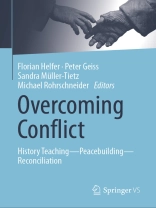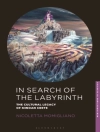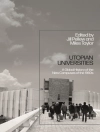Peacebuilding and reconciliation between groups and entire nations that share a violent past are among the toughest, yet most important, challenges for modern societies. Opposing perspectives, disagreements about the interpretation of historical events or even entirely different narratives too often impede processes of rapprochement. How can teaching history contribute to overcoming the demarcation lines of such narratives and resolving historical conflicts that are passed on from generation to generation or renewed, amplified and exploited for present political purposes? This volume comprises twelve case studies—from Central and Eastern Europe to South Africa, from the Middle East to East Asia—exploring stories about successes and failures in the never-ending struggle for peaceful coexistence. All of them ultimately reflect the fundamental question of our discipline: Can we learn from history?
Spis treści
Foreword.- Introduction: Understanding and overcoming conflict.- I Peacebuilding and reconciliation in the twentieth century.- II Peacebuilding in history teaching today.- III Learning from history? Comparative perspectives.- IV Peacebuilding in the digital realm.
O autorze
Florian Helfer is a Doctoral Research Assistant at the Department of History at the University of Bonn. He teaches and researches History Didactics in the eponymous section of the Department.
Peter Geiss is Professor of History Didactics at the Department of History at the University of Bonn.
Sandra Müller-Tietz is a Doctoral Research Assistant at the Department of History at the University of Bonn. She teaches and researches History Didactics in the eponymous section of the Department.
Michael Rohrschneider is Professor of Early Modern History and Rhenish Regional History at the Department of History and Head of the Centre for Historical Peace Studies at the University of Bonn.












